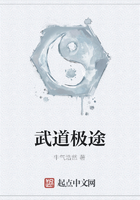There are, however, certain exclusions, required by positive reasons, which do not conflict with this principle, and which, though an evil in themselves, are only to be got rid of by the cessation of the state of things which requires them. I regard it as wholly inadmissible that any person should participate in the suffrage without being able to read, write, and, I will add, perform the common operations of arithmetic. Justice demands, even when the suffrage does not depend on it, that the means of attaining these elementary acquirements should be within the reach of every person, either gratuitously, or at an expense not exceeding what the poorest who earn their own living can afford. If this were really the case, people would no more think of giving the suffrage to a man who could not read, than of giving it to a child who could not speak; and it would not be society that would exclude him, but his own laziness. When society has not performed its duty, by rendering this amount of instruction accessible to all, there is some hardship in the case, but it is a hardship that ought to be borne. If society has neglected to discharge two solemn obligations, the more important and more fundamental of the two must be fulfilled first: universal teaching must precede universal enfranchisement. No one but those in whom an a priori theory has silenced common sense will maintain that power over others, over the whole community, should be imparted to people who have not acquired the commonest and most essential requisities for taking care of themselves; for pursuing intelligently their own interests, and those of the persons most nearly allied to them. This argument, doubtless, might be pressed further, and made to prove much more. It would be eminently desirable that other things besides reading, writing, and arithmetic could be made necessary to the suffrage; that some knowledge of the conformation of the earth, its natural and political divisions, the elements of general history, and of the history and institutions of their own country, could be required from all electors. But these kinds of knowledge, however indispensable to an intelligent use of the suffrage, are not, in this country, nor probably anywhere save in the Northern United States, accessible to the whole people; nor does there exist any trustworthy machinery for ascertaining whether they have been acquired or not. The attempt, at present, would lead to partiality, chicanery, and every kind of fraud. It is better that the suffrage should be conferred indiscriminately, or even withheld indiscriminately, than that it should be given to one and withheld from another at the discretion of a public officer. In regard, however, to reading, writing, and calculating, there need be no difficulty. It would be easy to require from every one who presented himself for registry that he should, in the presence of the registrar, copy a sentence from an English book, and perform a sum in the rule of three; and to secure, by fixed rules and complete publicity, the honest application of so very simple a test. This condition, therefore, should in all cases accompany universal suffrage; and it would, after a few years, exclude none but those who cared so little for the privilege, that their vote, if given, would not in general be an indication of any real political opinion.
It is also important, that the assembly which votes the taxes, either general or local, should be elected exclusively by those who pay something towards the taxes imposed. Those who pay no taxes, disposing by their votes of other people's money, have every motive to be lavish and none to economise. As far as money matters are concerned, any power of voting possessed by them is a violation of the fundamental principle of free government; a severance of the power of control from the interest in its beneficial exercise. It amounts to allowing them to put their hands into other people's pockets for any purpose which they think fit to call a public one; which in some of the great towns of the United States is known to have produced a scale of local taxation onerous beyond example, and wholly borne by the wealthier classes. That representation should be co-extensive with taxation, not stopping short of it, but also not going beyond it, is in accordance with the theory of British institutions. But to reconcile this, as a condition annexed to the representation, with universality, it is essential, as it is on many other accounts desirable, that taxation, in a visible shape, should descend to the poorest class. In this country, and in most others, there is probably no labouring family which does not contribute to the indirect taxes, by the purchase of tea, coffee, sugar, not to mention narcotics or stimulants. But this mode of defraying a share of the public expenses is hardly felt: the payer, unless a person of education and reflection, does not identify his interest with a low scale of public expenditure as closely as when money for its support is demanded directly from himself; and even supposing him to do so, he would doubtless take care that, however lavish an expenditure he might, by his vote, assist in imposing upon the government, it should not be defrayed by any additional taxes on the articles which he himself consumes. It would be better that a direct tax, in the simple form of a capitation, should be levied on every grown person in the community; or that every such person should be admitted an elector on allowing himself to be rated extra ordinem to the assessed taxes; or that a small annual payment, rising and falling with the gross expenditure of the country, should be required from every registered elector; that so everyone might feel that the money which he assisted in voting was partly his own, and that he was interested in keeping down its amount.















